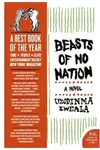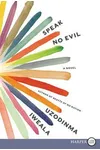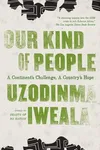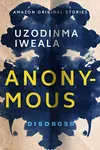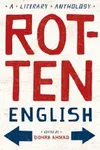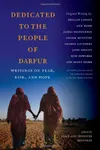Picture a Nigerian-American storyteller who transformed a Harvard thesis into a literary sensation—meet Uzodinma Iweala! This novelist and medical doctor crafts gripping tales of war, identity, and resilience, blending raw emotion with poetic prose. His debut, Beasts of No Nation, stunned readers and inspired a Netflix film, cementing his voice in contemporary literature.
Born in 1982, Iweala balances dual careers with finesse, weaving his Nigerian heritage and medical insights into stories that pulse with humanity. Ready to dive into his world? Let’s explore his journey, works, and lasting impact.
The Making of Uzodinma Iweala
Uzodinma Iweala was born in Washington, D.C., to Nigerian parents, including his mother, Dr. Ngozi Okonjo-Iweala, a prominent economist. Raised in a household valuing education and culture, Iweala attended Harvard University, graduating magna cum laude in 2004 with a degree in English and American Literature. His creative spark ignited early, fueled by a high school article about child soldiers in Sierra Leone. Under the mentorship of novelist Jamaica Kincaid, Iweala honed his craft, turning his senior thesis into the groundbreaking Beasts of No Nation.
After Harvard, Iweala pursued medicine at Columbia University, earning an M.D. in 2011. His dual path as a doctor and writer reflects his commitment to healing—both through storytelling and science. This unique blend shapes his empathetic, unflinching narratives.
Uzodinma Iweala’s Unforgettable Stories
Iweala’s debut, Beasts of No Nation (2005), follows Agu, a child soldier in a war-torn African nation. Written in vivid, poetic pidgin English, the novel captures Agu’s shattered innocence and moral struggles. Critics praised its raw intensity, earning Iweala awards like the New York Public Library’s Young Lions Fiction Award. The 2015 Netflix adaptation, directed by Cary Fukunaga and starring Idris Elba, brought Agu’s story to a global audience.
In 2012, Iweala shifted to nonfiction with Our Kind of People, a compassionate exploration of Nigeria’s HIV/AIDS crisis. Drawing on his medical background and research with activists, he humanizes a complex epidemic. His 2018 novel, Speak No Evil, dives into the life of Niru, a gay Nigerian-American teen navigating identity, religion, and prejudice in Washington, D.C. The novel’s stream-of-consciousness style and dual narrators showcase Iweala’s versatility, tackling race, sexuality, and privilege with nuance.
Iweala’s writing is marked by lyrical yet stark prose, often blending childlike perspectives with brutal realities. His themes—war, cultural dislocation, and resilience—resonate deeply, reflecting his Nigerian-American lens and commitment to marginalized voices.
Why Uzodinma Iweala Matters
Iweala’s work transcends borders, shedding light on global issues like child soldiers and HIV/AIDS while exploring universal questions of identity and survival. His ability to humanize suffering through vivid characters has made him a vital voice in literary fiction. As CEO of The Africa Center in New York, Iweala champions African culture and policy, amplifying diverse narratives. His dual roles as doctor and writer inspire readers to confront hard truths with empathy.
Recognized as one of Granta’s Best Young American Novelists in 2007, Iweala continues to shape contemporary literature. His stories challenge readers to see the world through others’ eyes, fostering understanding in a divided world.
- Born: November 5, 1982, Washington, D.C.
- Key Works: Beasts of No Nation (2005), Our Kind of People (2012), Speak No Evil (2018)
- Awards: Young Lions Fiction Award (2006), Granta Best Young American Novelists (2007)
- Education: Harvard University (A.B., 2004), Columbia University (M.D., 2011)
Snag Beasts of No Nation or Speak No Evil and dive into Uzodinma Iweala’s electrifying world of literary fiction!
